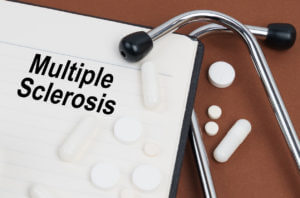Parkinson’s disease is a degenerative disorder of the nervous system that affects movement. It is a condition that progressively worsens over time, making it challenging for individuals to perform basic tasks such as brushing their teeth, getting dressed, and even standing up. While there is currently no cure for Parkinson’s disease, there are several ways
Read MoreBlog
Speech and Language Therapy for Cerebral Palsy
Speech disorders are common in individuals with cerebral palsy. This is why speech and language therapy for cerebral palsy is a necessary and highly valuable intervention. Speech and language therapy targets the challenges in communication that accompany cerebral palsy. The goal is to enhance the individual’s ability to express himself or herself. In this article,
Read MoreMental Health and MS: Addressing Depression and Anxiety
Multiple sclerosis (MS) is a condition that affects the system of nerves, which facilitates communication between the brain and the rest of the body. The neurological condition not only affects physical health but can also have a significant impact on mental well-being. Depression and anxiety are common among individuals living with MS, which can affect
Read MoreWhen to See a Neurologist: Recognizing Signs that Require Neurological Attention
A neurologist is a medical professional specially trained to diagnose and treat conditions affecting the brain and nervous system. These conditions can range from mild headaches to severe neurological disorders that can result in paralysis or death. If you or someone you know is experiencing symptoms that suggest a neurological problem, seeing a neurologist as
Read MoreSpeech Therapy for Cerebral Palsy: Communication Strategies and Techniques
Cerebral palsy is a neurological disorder that affects muscle coordination and body movement. It is caused by brain damage before, during, or shortly after birth. Though primarily known for its impact on the ability to move muscles properly, cerebral palsy can also make it difficult to speak or communicate clearly. When it comes to overcoming
Read MoreAddressing Communication Challenges in Cerebral Palsy
Cerebral palsy (CP) is a neurological disorder that affects sensory and cognitive development. Two areas individuals with cerebral palsy can have difficulties with are movement and communication. Therefore, there are physical and communication challenges in cerebral palsy. Communication is a fundamental aspect of human interaction, and finding effective ways to communicate can significantly enhance the
Read MoreAdvancements in Neuroimaging: High-Resolution MRI and Beyond
Neuroimaging is the process of producing images of the brain with the use of imaging techniques. Advancements in neuroimaging allow doctors to study the brain and its function and play a crucial role in identifying abnormalities associated with neurological conditions. Brain injuries, spinal cord tumors, strokes, and aneurysms are all evaluated with the help of
Read MoreAssistive Technology for Cerebral Palsy: Tools for Independence
Cerebral palsy is a neurological disorder that can make individuals who have been diagnosed with it experience challenges with relation to movement and communication. People who have cerebral palsy often need assistance with everyday tasks, which means a lot of them are unable to live independently. However, with the help of assistive technology, individuals with
Read MoreDecoding Disease-Modifying Therapies (DMTs): How They Work and Common Types
Disease-modifying therapies (DMTs) are advanced treatments used to slow down the progression of diseases. The aim of DMTs is to target the pathology of the disease, not as a cure, but as a way to slow its progression and to make the symptoms more manageable. DMTs can be part of a comprehensive treatment for patients
Read MorePhysical Therapy for Cerebral Palsy: Improving Mobility and Function
Living with cerebral palsy can present unique challenges, especially when it comes to mobility and function. However, physical therapy has proven to be a valuable tool in improving the quality of life for individuals with cerebral palsy. Through targeted exercises and therapies, physical therapists can help enhance mobility, reduce pain, and increase independence. Let’s dive
Read More











